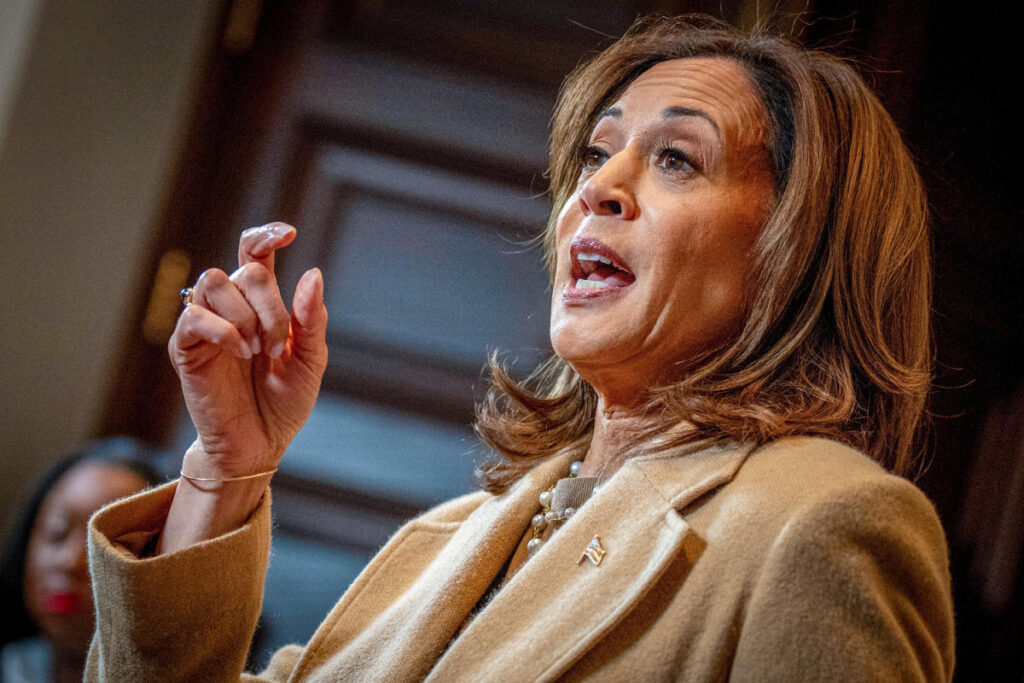Vice President Kamala Harris expressed strong criticism towards Speaker Mike Johnson regarding his recent remark on the potential repeal of the CHIPS and Science Act by Republicans if they regain control of Congress in upcoming elections. During a press conference in Milwaukee, Harris emphasized that Johnson’s comments highlight the ongoing agenda pursued by former President Donald Trump, which she referred to as “Project 2025.” This agenda, according to Harris, intends not only to destabilize healthcare provisions like the Affordable Care Act but also to dismantle critical economic initiatives like the CHIPS Act, which promotes domestic semiconductor manufacturing and innovation.
Harris’s comments followed an event in New York where Johnson, alongside Rep. Brandon Williams, acknowledged the possibility of repealing the CHIPS Act if Republicans were victorious in the elections. This declaration was met with immediate pushback from Williams, who underscored the significance of the CHIPS Act for jobs and economic growth in their region. Johnson attempted to clarify his statement after the backlash, asserting that he supports Micron’s investment in New York and emphasizing that repeal of the CHIPS Act was not on their legislative agenda. He further suggested that instead of repeal, there might be efforts to adjust the Act to reduce regulatory burdens.
Harris did not hold back in her critique of Johnson, implying that his retraction was an indication of the unpopularity of the Republican agenda. She pointed out that the public response to such remarks demonstrates a clear demand for policies that prioritize economic upliftment and job creation. The vice president’s comments echo a broader concern among Democrats about the potential impact of Republican policies on middle-class Americans and working families, something they believe could galvanize voter turnout against Republican candidates in the elections.
Democrats rallied behind Harris’s stance, with party officials and representatives across the country echoing her sentiments. Ian Sams, a spokesperson for Harris, remarked on social media about the implications of Johnson’s acknowledgment, indicating that such a proposal would threaten job opportunities tied to investments emerging from the CHIPS Act. Senate Majority Leader Chuck Schumer also criticized Johnson on social media, stating that his comments represent a threat to the livelihoods of construction workers engaged in critical infrastructure projects funded by the CHIPS Act.
The CHIPS and Science Act, passed with broad bipartisan support in 2022, allocates $280 billion to bolster domestic research and semiconductor manufacturing. The initiative was designed to foster American competitiveness in a critical industry and create jobs. According to the Commerce Department, early impacts of the Act have already included $53 billion in spending on semiconductor initiatives, resulting in substantial private investments and the establishment of new manufacturing jobs across the nation.
In conclusion, the recent back-and-forth between Harris and Johnson highlights a significant political flashpoint leading up to the elections, demonstrating the stakes surrounding economic policy and job creation. The Republicans’ stance on the CHIPS Act has drawn scrutiny, and the party will need to navigate these discussions carefully, as the implications of their statements could heavily influence voter sentiment in the upcoming election cycle. Harris’s emphasis on ensuring support for working families and job creation contrasts sharply with the proposals made by some Republican leaders, underscoring the broader ideological battle over economic priorities in American politics today.

